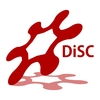Teaching offer
Programme outline
The master’s degree programme in Sustainable Chemistry and Technologies for Circular Economy is a two-year long programme with a workload of 120 ECTS divided as follows:
– 60 ECTS associated with teaching units offered throughout the first year and common to all students; these units aim at providing knowledge of the most common green chemistry techniques and the related industrial processes, as well as of thermodynamic and catalytic processes and their application to environmental protection and a circular production system. Students will also acquire knowledge in the fields of renewable energy technologies and the use and management of waste and the water resource, both from an environmental and socio-economic point of view. In order to understand and acquire basic knowledge of production process management, environmental legislation and CE economy, specific courses will be offered so as to gain an understanding of the relations between economic aspects and environmental issues.
– 45 ECTS associated with one of the two curricula students can choose from, namely Resources and product design and recycling and Energy conversion and storage. Whereas the former has a strong interdisciplinary approach focusing on materials which intends to provide the knowledge and competencies necessary to select, design, implement and characterize sustainable materials (both natural and synthetic) from a structural, compositional and functional point of view, taking into account aspects such as the recycling of plastics, polymers and inorganic materials (e.g. metals and glasses), the latter focuses on topics and issues associated with energy, and takes into consideration technological, economic and market-related aspects for the production, distribution, storage and use of energy, with particular attention to electrochemistry, biomass energy and the management of the energy process according to a circular model.
– 15 ECTS associated with practical activities carried out in companies, research bodies, agencies or public administration bodies (internship) during which students will have the chance to come into contact with productive activities and apply their knowledge within a real industrial context.
For detailed information on the programme outline, click HERE.
Internship
One of the main features of the master’s degree programme in Sustainable Chemistry and Technologyies for Circular Economy is its strong application-oriented approach which enables students to apply knowledge acquired within the production context. The variety of needs associated with the implementation of a circular economy model and the complexity arising from the great number of actors involved, sectors, resources and areas within which CE can be found require a close integration, at the teaching level, between theory and practice.
In the light of the above, it is easy to understand how important it is for students to take part in an internship (15 ECTS) within companies, research bodies, agencies, or public administration facilities. The internship will provide students with the opportunity to come into direct contact with industrial activities and apply their knowledge within a real context of implementation of circular economy.
Summer schools
Summer schools take place every year towards the end of July. They last one week and consist of 4 thematic modules of 9 hours each. Topics covered intend to provide participants with soft skills related to aspects that are not dealt with in the degree programme, such as corporate environmental communication, bioeconomy, ecotoxicology, etc.
Summer schools involve the participation of both university teachers and external, qualified experts from national and international companies.
Summer schools are open to:
- all students enrolled in the master’s degree programme in Sustainable Chemistry and Technologies for Circular Economy of the University of Padova (free)
- some students enrolled in the following master’s degree programmes of the University of Padova: Chemistry, Industrial Engineering and Material Science (free)
- companies' employees (participation fee)
For further information, click here.
Interactive seminars
In order to promote a close integration with the economic and productive context, interactive seminars will be organized every two months, involving experts from the industrial sector and corporate consulting specialists. Topics covered will be related to CE and will include: recycling of precious metals, application of circular principles to specific product sectors, drafting of a sustainability report, etc. Seminars will last approximately two hours and will be offered as early as year 1. Although attendance is not mandatory, students are encouraged to participate as discussion between speakers and students is promoted.
Class timetable
To check the class timetable, please click HERE.





